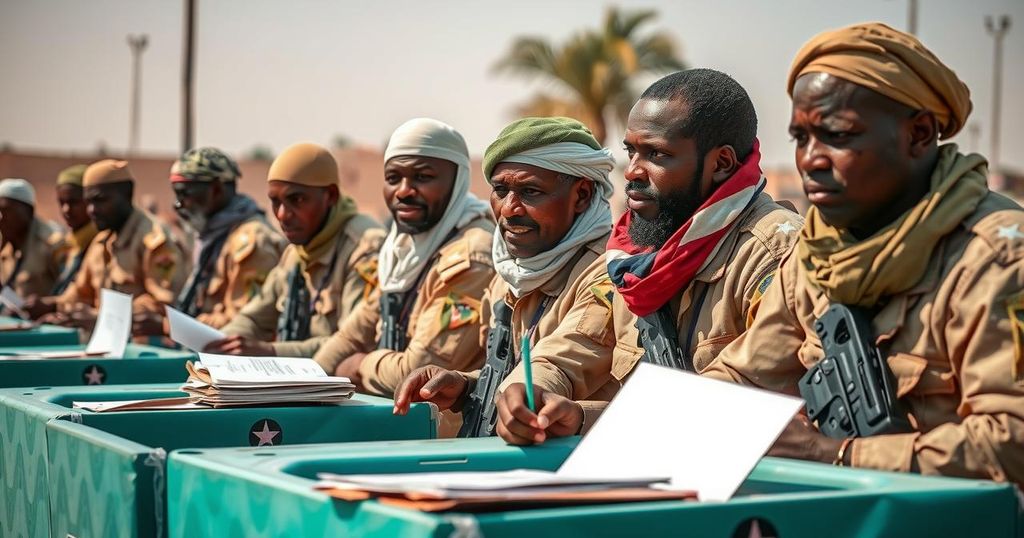Chad’s Military and Nomads Participate in Controversial General Elections
Chad’s military and nomads voted in general elections amid opposition boycotts, with initial turnout reaching 45 percent by midday. Initially concluding logistical voting a day early, the government positions these elections as crucial for democratic transition despite claims of a sham from opposition parties. Security threats from Boko Haram and international tensions further complicate Chad’s electoral landscape.
On Saturday, members of Chad’s military and nomadic tribes participated in general elections that the government portrays as a significant move towards democracy. However, opposition groups are boycotting the elections, branding them as a deceit. While the majority of the populace is set to vote on Sunday for national and local positions, military personnel and nomads were called upon to cast their ballots a day earlier for logistical efficiency.
Initial estimates indicated that approximately 45 percent of 200,000 nomads and 45,000 soldiers had already voted by midday. Reports from polling stations, such as the Koundoul barracks near the capital, N’Djamena, indicated a normal voting process with military personnel voting freely. Similar participation was noted among nomads, who expressed their hopes for improved living conditions due to climate challenges affecting their livelihoods.
The elections occur amid significant challenges, including ongoing threats from the jihadist group Boko Haram in the Lake Chad region, the recently dissolved military accord with France, and allegations of Chad’s interference in neighboring Sudan’s conflicts. President Mahamat Idriss Deby Itno’s government has positioned these elections as crucial for the country’s shift to democratic governance. Deby, who assumed power following his father’s death in 2021, has faced criticism over the legitimacy of recent electoral processes, including a presidential vote denounced as fraudulent last May.
It is noteworthy that the last legislative elections occurred in 2011, with numerous subsequent elections postponed due to various crises, including security threats and the COVID-19 pandemic. This context underscores the turbulent political landscape of Chad.
Chad has experienced a prolonged period of political turmoil and instability, characterized by autocratic governance and conflict. The late Idriss Deby Itno, who ruled for thirty years, was succeeded by his son, Mahamat Idriss Deby Itno, following the elder Deby’s death in 2021. Attempts to transition Chad towards a more democratic system have been met with significant opposition, public dissatisfaction, and ongoing security challenges, including threats from extremist groups. The current elections are seen as both a reflection of and a response to this complex political and social backdrop, particularly amidst the obstructive circumstances that have delayed previous electoral events.
In summary, Chad’s recent elections represent a contentious step towards democratic governance amidst widespread opposition boycotts and significant national challenges. The military’s and nomads’ participation highlights the urgent need for political legitimacy and improvements in living conditions for affected communities. Nevertheless, the opposition’s portrayal of the elections as a farce raises critical questions about the integrity of the electoral process and the future of democracy in Chad, particularly in the wake of past electoral grievances.
Original Source: www.barrons.com




Post Comment